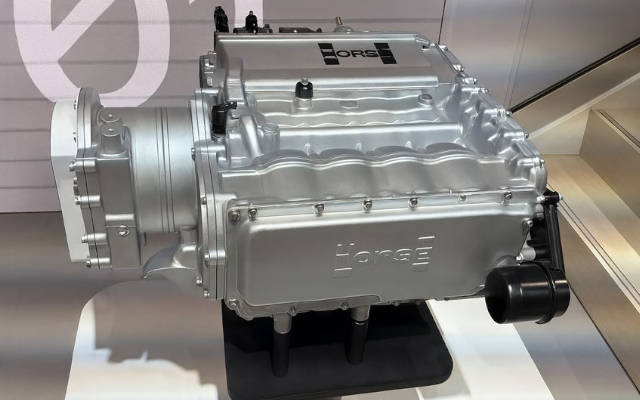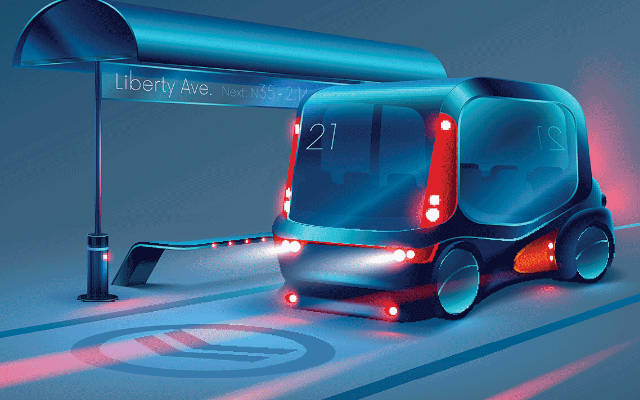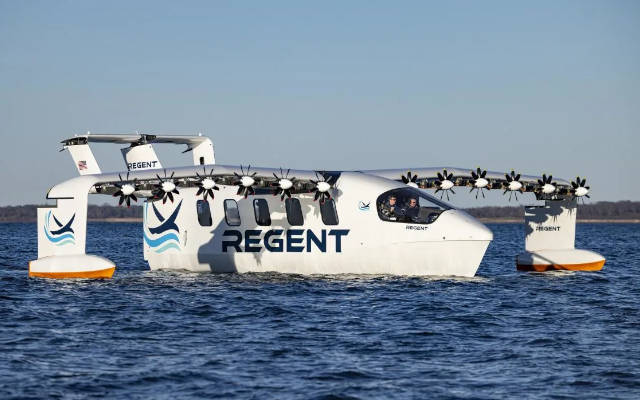 EDITOR'S PICK
EDITOR'S PICK
The West is Driving in the Rearview Mirror: A Wake-Up Call from the Electrotech Revolution
24 Sep 2025 | Synopsis
 Kingsmill Bond argues the West is deluding itself about the energy transition. The "electrotech revolution" led by solar, batteries, and EVs is already here, advancing exponentially, and is cheaper than fossil fuels. While emerging markets are embracing this, the West risks being left behind by its outdated assumptions and a linear mindset toward change.
Kingsmill Bond argues the West is deluding itself about the energy transition. The "electrotech revolution" led by solar, batteries, and EVs is already here, advancing exponentially, and is cheaper than fossil fuels. While emerging markets are embracing this, the West risks being left behind by its outdated assumptions and a linear mindset toward change.XCharge NA Is Now Leasing DC Fast Chargers To Small Businesses
24 Sep 2025 | Synopsis
 XCharge North America has partnered with Ascentium Capital to offer a leasing program for DC fast chargers, aimed at small businesses. This program allows businesses to install chargers, like the GridLink and C6 models, for an affordable monthly rate starting at $800, removing the need for a large upfront investment. The leasing package includes installation, equipment, warranties, and maintenance, and lets the business keep all the charging revenue.
XCharge North America has partnered with Ascentium Capital to offer a leasing program for DC fast chargers, aimed at small businesses. This program allows businesses to install chargers, like the GridLink and C6 models, for an affordable monthly rate starting at $800, removing the need for a large upfront investment. The leasing package includes installation, equipment, warranties, and maintenance, and lets the business keep all the charging revenue.Realistic Assessment: Horse Powertrain's C15 Engine and the Future of EV
22 Sep 2025 | Synopsis
 Horse Powertrain's C15 is a compact, Euro 7-compliant gasoline generator designed for extended-range EVs. It activates only when battery charge drops, offering 70 kW for sedans and 120 kW for larger vehicles. While efficient, it still emits 120–140 g CO₂/km when active. Backed by Renault, Geely, and Aramco, Horse can mass-produce it—but OEM adoption is key. EREVs face pressure from falling battery costs and rising BEV capabilities.
Horse Powertrain's C15 is a compact, Euro 7-compliant gasoline generator designed for extended-range EVs. It activates only when battery charge drops, offering 70 kW for sedans and 120 kW for larger vehicles. While efficient, it still emits 120–140 g CO₂/km when active. Backed by Renault, Geely, and Aramco, Horse can mass-produce it—but OEM adoption is key. EREVs face pressure from falling battery costs and rising BEV capabilities.In Just 15 Years, No One Will Own an Electric Car - Here's What Will Replace Them Instead
21 Sep 2025 | Synopsis
 EVs are central to a coming shift in mobility: by 2040, personal electric car ownership may disappear as automakers pivot to subscription-based, software-driven models. EVs will serve as platforms for autonomous fleets, shared transport, and tiered digital services. Younger users prefer access over ownership, and manufacturers are redesigning vehicles as connected devices - raising concerns over repair rights, data control, and user autonomy.
EVs are central to a coming shift in mobility: by 2040, personal electric car ownership may disappear as automakers pivot to subscription-based, software-driven models. EVs will serve as platforms for autonomous fleets, shared transport, and tiered digital services. Younger users prefer access over ownership, and manufacturers are redesigning vehicles as connected devices - raising concerns over repair rights, data control, and user autonomy.US Firm Bids To Bring 'Flying Boats' to Scottish Islands Transport Network
21 Sep 2025 | Synopsis
 US firm Regent is partnering with Scotland’s Hitrans to explore using electric "flying boats" called Seagliders for island transport. These vessels combine boat, hydrofoil, and low-altitude flight technologies, reaching speeds up to 180 mph. A 12-passenger model may launch in Orkney by 2026–2027, with a larger version planned for 2030. The project aims to improve connectivity and reduce emissions across the Highlands and Islands.
US firm Regent is partnering with Scotland’s Hitrans to explore using electric "flying boats" called Seagliders for island transport. These vessels combine boat, hydrofoil, and low-altitude flight technologies, reaching speeds up to 180 mph. A 12-passenger model may launch in Orkney by 2026–2027, with a larger version planned for 2030. The project aims to improve connectivity and reduce emissions across the Highlands and Islands.
 Si Exclusive
Si Exclusive
Hydrogen's Flight Path: Fuel Cells, Turbines, and the Economics of Clean Aviation
10 Oct 2025 |  Aviation is shifting from Jet A to four fuel systems: electricity, hydrogen (fuel cell and combustion), SAF, and petroleum. Fuel cells suit short-haul aircraft; hydrogen combustion may power long-range jets. SAF bridges legacy fleets. Hydrogen costs - $5-$7/kg today, possibly $2/kg by 2040 - impact ticket prices and infrastructure decisions. Airport authorities, airlines, and governments will share deployment costs. Each fuel has distinct environmental pros and cons shaping aviation's net-zero future.
Aviation is shifting from Jet A to four fuel systems: electricity, hydrogen (fuel cell and combustion), SAF, and petroleum. Fuel cells suit short-haul aircraft; hydrogen combustion may power long-range jets. SAF bridges legacy fleets. Hydrogen costs - $5-$7/kg today, possibly $2/kg by 2040 - impact ticket prices and infrastructure decisions. Airport authorities, airlines, and governments will share deployment costs. Each fuel has distinct environmental pros and cons shaping aviation's net-zero future.
 11 Oct 2025 13:08:28 UTC |
RECENT PODCASTS
BYD Soars - Cheaper Tesla Models - The Bolt is Back - Rivian
SEARCH RSSTREAM
 32 New Postings In Past 24 Hours
32 New Postings In Past 24 Hours
Category:mobility
Region:Europe
Date:10 Oct 2025
Category:energy
Region:Global
Date:10 Oct 2025
Category:mobility
Region:SoAmerica
Date:10 Oct 2025
Category:energy
Region:NoAmerica
Date:10 Oct 2025
Category:mobility
Region:NoAmerica
Date:10 Oct 2025
Category:finance
Region:AsiaPacific
Date:10 Oct 2025
Category:policy
Region:NoAmerica
Date:10 Oct 2025
Category:finance
Region:NoAmerica
Date:10 Oct 2025
Category:mobility
Region:AsiaPacific
Date:10 Oct 2025
Category:policy
Region:NoAmerica
Date:10 Oct 2025